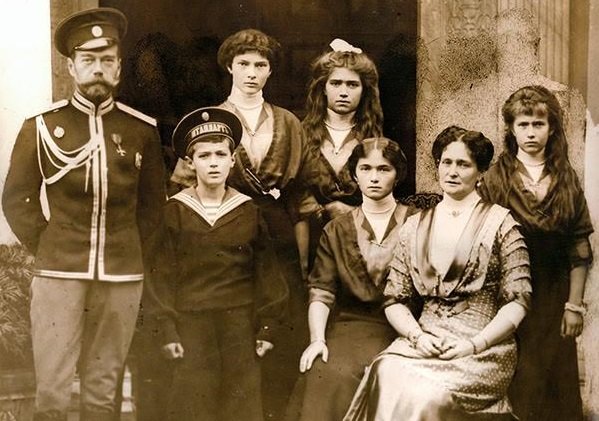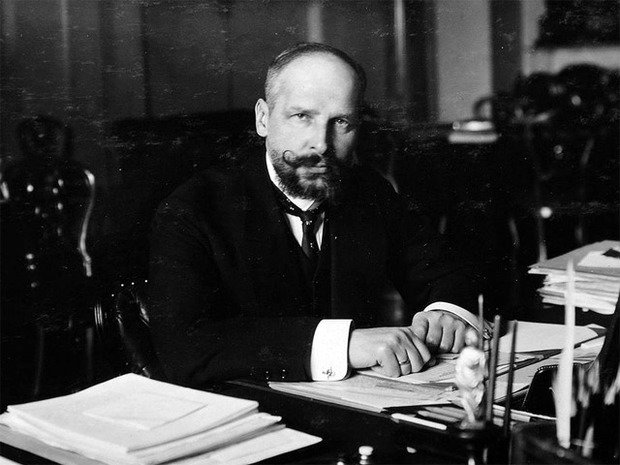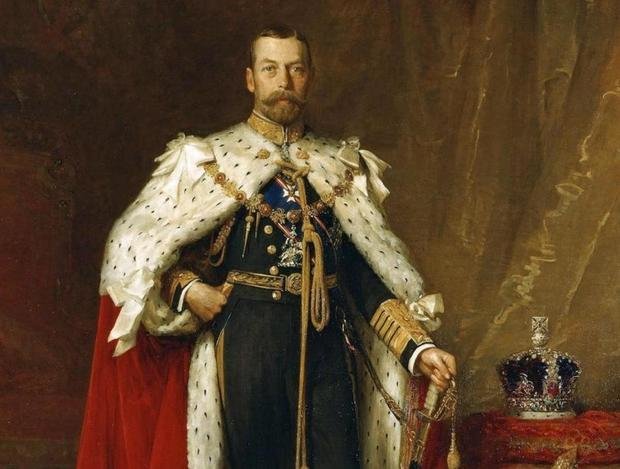''The interest in Nicholas had been simply lost by 1918...''
Historian Vladimir Buldakov about the execution of Tsar Nicholas II’s family
It's been 100 years since the execution of former Emperor Nicholas's family. In an interview with Realnoe Vremya, Doctor of Historical Sciences, Russian Academy of Sciences professor, author of several scientific endeavours about the revolutionary and pre-revolutionary periods in the country's history Vladimir Buldakov tells why the last Russian tsar was doomed to end his life this way.
''If you are a landowner, the landowner is accountable. This is why it turned out as it turned out''
Mr Buldakov, in your book Red Trouble. The Nature and Consequences of the Revolutionary Violence, which is famous and valuable in the scientific community and among readers, you didn't pay a lot of attention to the tragedy that happened in Yekaterinburg 100 years ago. Why? Isn't it a serious act of revolutionary violence?
The episode of the execution of the tsar's family was unnoticed then, you know, people didn't groan, and different classes of society were quite indifferent to this news. By the way, the rumours that the imperial family wasn't shot dead went about the country before its death. This is why nobody surprised at the fact the tsar had been executed, the country was indifferent to the execution.
Why was society indifferent to the news the tsar had been executed? Was it so because the time was turbulent, life-changing, a new fair world, as it was considered, was built or because Nicholas's popularity fell so much in World War One that he wasn't interesting for citizens, to put it mildly?
The interest in Nicholas had been simply lost. What's more, it had been considered a long time ago he was doomed, this is why the death didn't cause emotions except perhaps among a small class of courtiers and some officers. Of course, there were attempts to save Nicholas, but they were unsuccessful and were doomed to failure.
Did Nicholas lose the importance, respect and interest of his people gradually or did the war decide everything with its failures on fronts and rumours about the influence of Grigory Rasputin on the tsar, the rumours about close links between empress and ''wise'' Grigory?
Both. But the propaganda of those years also played a respective role. Alexandra Fyodorovna was simply hated, while satiric newspapers of that time just insulted her mercilessly, and the emperor also got his portion. This is why it's no surprise these figures lost any importance for society by the time of execution.
Your colleague Kirill Solovyov's book Russian Landowner? has recently come to light. It's thought big functionaries who took advantage of Nicholas's weakness in different issues were behind the misfortunes that arose soon in Russia than the emperor himself…
We can agree with it. But as for Nicholas II, to put it briefly, the person wasn't in the right place. Due to the authoritarianism of our political culture, many things are usually linked with the activity of the country's first person. And, in any case, whatever happens, he assumes the responsibility. And Nicholas himself called he was the ''Russian landowner'' in the questionnaire for a national census. But if you are a landowner, the landowner is accountable. This is why it turned out as it turned out.

''The rumours that the imperial family wasn't shot dead went about the country before its death. This is why nobody surprised at the fact the tsar had been executed, the country was indifferent to the execution.'' Photo: russian7.ru
''British ambassador insinuated many times Nicholas II needed to meet society halfway''
Who could influence the tsar among bureaucratic personalities if we don't cross the role of functionaries in historical events of that time out? Who is responsible for Russia's plunge into the abyss of tragic events?
I will say so, Nicholas II chose ministers badly: he did it out of personal loyalty, as for professional qualities, he simply ignored them. Loyal people in the government is a feature of any authoritarian system, while it's was quite odious individuals for society. Society considered same Internal Minister Protopopov even psychically damaged.
But the tsar appointed sensible people for posts too – Sergey Vitter, the father of the ''economic miracle'', Pyotr Stolypin, who launched agricultural reforms. Or did Nicholas do this all again not at his own initiative, as I understand, and were these successful appointments a rare thing?
In comparison with the quite talentless elite, same Stolypin stood out in a crowd, of course, due to his determination, and it's hard to say who recommended him to Nicholas. The choice of Stolypin wasn't accidental anyway – it's was during the first revolution that scared the tsar. But Stolypin's collapse wasn't accidental either because he shadowed the very emperor. Chief Commander of the Russian Army, the tsar's uncle Nicholas Nikolayevich was also determined, and, of course, Nicholas II was noticeably losing compared to him. And in 1915, the tsar suspended the uncle from command.
For this reason, the situation of any ministers under this kind of emperor who didn't burden himself with the country's affairs was complicated. This is why Vitte, several other ministers also resigned, Stolypin would have been dismissed if not the attempt on his life in Kiev.
In addition, it was the case of the influence of both the entourage and Alexandra Fyodorovna. She demanded greater determination from him, while Nicholas wasn't able to be so, and their correspondence shows this: though ironically, but Nicholas signed sometimes as ''Your poor little weak-willed hubby'', so everything is logical.
Even great princes began to support the constitutional monarchy, but Nicholas didn't agree for ideological reasons, for religious ideas, he thought he should follow his father's principles. And, actually, he wasn't ready for the role of the tsar and wasn't able to assume such a responsibility.

''In comparison with the quite talentless elite, same Stolypin stood out in a crowd, of course, due to his determination, and it's hard to say who recommended him to Nicholas.'' Photo: gefter.ru
If the appointments of competent people for posts weren't a sound approach of the emperor himself, what about Nicholas's abdication? Was it the pressure of militaries or just his decision anyway?
We can't say the abdication was carried out only under pressure of militaries. All military failures of those years coincided only with Nicholas II's image. The militaries were monarchists and also supposed the military failures were linked with Nicholas's personality as commander of the army. I will repeat Nicholas II didn't almost deal with state affairs. It's enough to look at his resolutions in protocols of the Council of Ministers, and you will see what a burden his obligations were for him. Emperor Nicholas trusted in God and thought it's enough he existed and reigned and he didn't need to do special brave actions. In a word, Nicholas simply already didn't comply with the requests of that time, the abdication comes from here.
What do you think of the role of foreign countries in the decision of Nicholas to abdicate? Now many adequate people can quite seriously talk about the British conspiracy. Is it rubbish?
As for England, the country's ambassador to Russia Buchanan insinuated many times Nicholas II needed to take some measures in 1916, to meet society halfway. And other influential foreigners insinuated the tsar needed to make concessions – to create the same government of confidence. But Nicholas II was stubborn and supposed he should behave as he did. As for reactions to Nicholas's abdication, England took it for granted and hope the things would be better in Russia later on.
''The decision to execute is still quite a complicated and opaque situation''
After Nicholas abdicated, the country's new power, Provisional Government, wanted to send him and his family to permanently reside in England, but it didn't work. Was the British government the reason that was afraid of unrest or was it King George's personal decision, who's, by the way, the tsar's cousin?
George V said the British were against such a step. And, in this case, as a constitutional monarch, George V respected the public opinion, that's it. Yes, Georg could have made another decision, but this step wouldn't be approved in society.
Didn't European monarchs change their attitude to sending the former tsar to their countries after the October Revolution? Very radical power came into power.
I don't know about it. Of course, there was an opinion among ambassadors from western countries in 1918 Nicholas II should have gone abroad due to the new conditions. But this didn't lead to anything. Again, the public of European countries was still against. It was probably possible to send the imperial family to Denmark because Nicholas's mother was Danish. But this wasn't welcomed with enthusiasm in certain foreign circles either. So after abdication, nobody needed Nicholas II abroad. He was an extra burden, if you like. He wasn't the person who could cause sympathy in Europe. But here we should say the attitude to what was happening in Russia immediately after March 1917 wasn't adequate. There reigned an opinion that like everything would be good later, it would wage a war more actively. It was very naïve.

''In this case, as a constitutional monarch, George V respected the public opinion, that's it. Yes, Georg could have made another decision, but this step wouldn't be approved in society.'' Photo: wikimedia.org
The decision to execute is still quite a complicated and opaque situation. But I can certainly say the measure of the masses, the Ural Council of Deputies, in this case, benefited both Lenin and Sverdlov. They didn't need a trial against Nicholas II in the situation that was in the country in 1918. And they breathed with a sigh of relief – Romanov didn't exist, thank God. Though I think the news that the children and close people were shot together with Nicholas and Alexandra shocked both Lenin and Sverdlov anyway. Why? Because the Bolsheviks didn't need extra cruelty, even if it came from the masses. On the other hand, Sverdlov perfectly knew these Yekaterinburg colleagues. In comparison with other Bolsheviks, they stood out as extreme radicals, I'd say even ferocious, and they could easily shoot anyone. The Ural council thought they conducted a historic sentence. It is no accident the execution's participants boasted later that they held the most terrifying campaign.
It's unlikely the green light was given from the top. The case is that before it happened, more than a month before it, tsar's brother Mikhail Romanov was shot, and this happened in semi-detective circumstances, if you like. Local leftist radicals ''stole'' Mikhail with his secretary and shot them in the forest. It was a purely leftist radical terrorist amateur performance, which was quite a characteristic of that time. And no teams from Moscow were needed for this. Perhaps Sverdlov insinuated in the past that Ural men were to act in complicated circumstances as they wished, and they made a decision. And if we remember Lenin approved Mikhail Romanov's murder, it turns out they did correctly.
To be continued